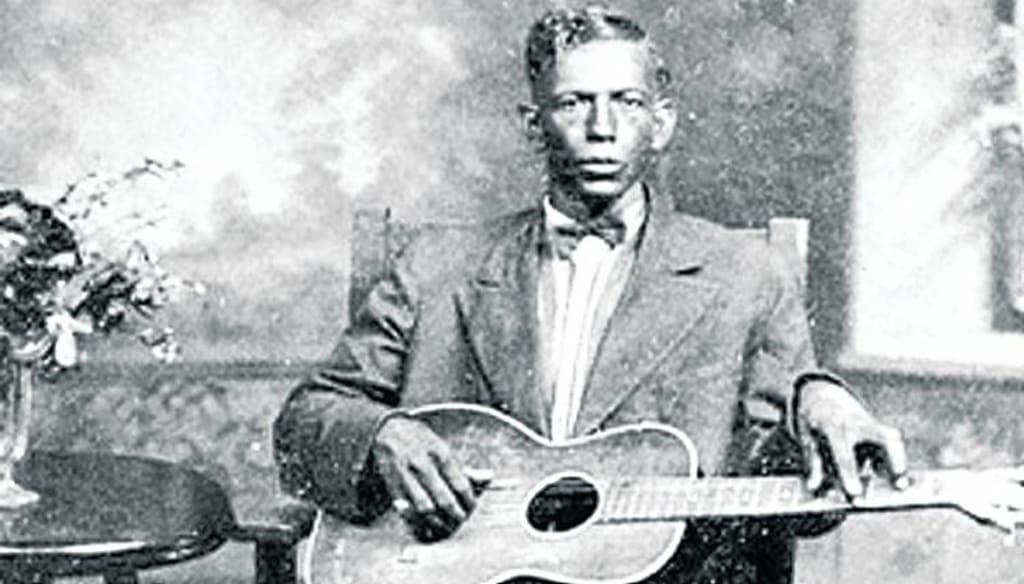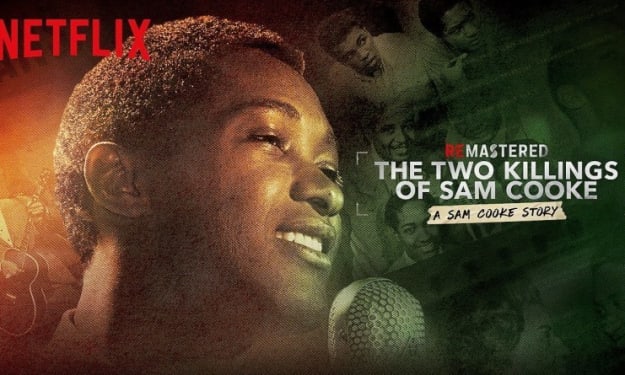Review: 'In Tune: Charley Patton, Jimmie Rodgers, and the Roots of American Music'
A book by Ben Wynne

I started reading this book and found it was increasingly interesting because initially, I thought it would just be about Charley Patton and Jimmie Rodgers' music—but it isn't. It's actually about the musical and cultural history of where they came from and why they did what they did. Many claim that they weren't the first—and they probably weren't—but they were definitely important according to the cultural climate regarding race, music and the blues at the time.
The first thing it concentrates on is the early 1900s and what happened in the cultural climates that these two men were singing in. It goes through the roots of the Mississippi Delta as well, and I really enjoyed the different aspects of life I was learning about. This gave a really good background to the reason why people believe that Patton is mixed race and how this had an impact on him playing as a musician of colour rather than a white man.
Although I am personally not as big of a fan of Jimmie Rodgers as I am of Charley Patton, I liked learning about the differences between the backgrounds of the two men. The one thing I liked the most was learning about the strange and cruel Jim Crowe laws that were put in place and the one-drop theories that intruded upon the space of Charley Patton, expelling him from playing as a white musician even though he was light-skinned.
In Tune: Charley Patton, Jimmie Rodgers, and the Roots of American Musicmakes sure that you know the cultural history before these two men came about, and then, it starts going through their careers and how they were impacted by these laws and these histories. There's a big history of the gospel music culture and how that led into the blues and the "black gospel" even though people didn't want gospel to have a colour.
It goes through the slave musician culture of the South and how the songs were chosen for dancing and how it would break up the work week during the hard times on the agricultural farms. They discuss why the fiddle was popular with southern musicians and how it was rejected as the devil's instrument by others.
There are so many historical and cultural facts about the ways in which Charley Patton and Jimmie Rodgers would have lived, and sometimes, it seems a bit overwhelming. But, I still enjoyed reading it because of the fact that I learnt so much from just one book, such as the fact that musical ability could increase a slave's worth. I know that sounds a bit strange because nowadays, we don't understand slavery, but back then, it was still a big thing, and the slave trade was really the beginning of most of America's modern music.
You actually realise that much of the music in modern America has its roots in not only slavery but also in black culture—even the music that was considered in the 20th century to be exclusively white. It was well known back then that black people were naturally better at music, having more rhythm and ability than white people. The banjo, fiddle, and later, the guitar were ideal instruments for black slaves, and yet, they evolved into instruments that took over.
Black people eventually abandoned the banjo as white people were beginning to discover it because of the new racist stereotypes that were attached to it. The blues would pick up the guitar, and Charley Patton, with his guitar, made a great impact on later music, including the music of Eric Clapton, Bob Dylan and many more.
It goes through many of the different people who impacted the careers of these two men, such as a man who brought the guitar to America. It especially considers how this changed and impacted Jimmie Rodgers. You get to know about the different guitars that the men used to play, such as the Stella Guitar that Charley Patton played (my god, we know his guitar but we don't know his birthday).
I really enjoyed this book because of the fact that it really goes through the different cultural, historical and musical impacts upon the early singers of the blues and country—Jimmie Rodgers and Charley Patton. There are also many other names included, such as the people who played instruments and put on shows in the late 19th century and early 20th century. This is way before the blackface of vaudeville, but it is probably just as, if not even more, incredibly racist. You learn a lot about the way in which vaudeville, ragtime and others evolved from this. The one thing I enjoyed was learning about the different songs (personally, I didn't know how old the song "Swanee"was until reading this book, I'd heard many versions of it!).
So, even though it is not entirely about Charley Patton and Jimmie Rodgers, it is rich with their cultural and musical history and why they did what they did to move their music through the new century. They are possibly two of the most important musicians of their time, and we need to appreciate them a lot more than we already do (also, listen to the remastered collection by Charley Patton if you're still not quite there, it's brilliant). I hope you too, choose to read this book. It is seriously, seriously good.
About the Creator
Annie Kapur
200K+ Reads on Vocal.
English Lecturer
🎓Literature & Writing (B.A)
🎓Film & Writing (M.A)
🎓Secondary English Education (PgDipEd) (QTS)
📍Birmingham, UK






Comments
There are no comments for this story
Be the first to respond and start the conversation.